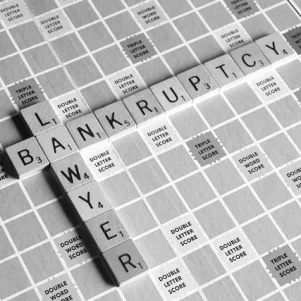In legal terms, an insolvency proceeding, regulated by the Insolvency Act, is a procedure utilized by an insolvent company to either reorganize its debts or liquidate its assets, to fulfil its financial obligations.
The process involves compiling a list of creditors, which holds significant importance and may be subject to challenges from creditors based on various grounds. Here, we outline the essential factors involved in challenging the list of creditors within an insolvency proceeding in Spain and discuss the potential consequences of a creditor’s exclusion from this list.
Challenging the list of creditors
Challenging the list of creditors in an insolvency proceeding is a legal recourse available to the parties involved. It allows them to question the inclusion or exclusion of specific creditors in the list submitted by the debtor, particularly in the context of a creditor arrangement. The common grounds to challenge the list of creditors are:
- Undue omission or exclusion: Legitimate creditors not included on the list can challenge the omission. By doing so, they can seek to ensure their inclusion and actively participate in the insolvency proceedings
- Wrongful listing: Creditors believed to be erroneously listed also have the right to challenge their inclusion. They may demonstrate that they are not entitled to be recognized as creditors, which becomes particularly relevant if there are errors in the amount owed or the debt is time-barred.
By addressing these grounds, parties involved can exercise their rights and ensure the accuracy and fairness of the list of creditors in an insolvency proceeding.
Consequences of exclusion from the list of creditors
Exclusion from the list of creditors in an insolvency proceeding can have significant effects, impacting the overall dynamics of the process. The following are relevant implications of such exclusion:
- Voting disenfranchisement: Excluded creditors are deprived of their right to vote at creditors’ meetings. This limitation curtails their ability to influence decisions that are crucial to the debtor and the insolvency process as a whole
- Difficulties in debt recovery: The exclusion of creditors makes them unable to participate in the distribution of the debtor’s assets. This impediment significantly hinders their ability to recover the owed debt and may even lead to losing their right to recover
- Loss of rights: Sometimes, delisting from the list of creditors may lead to the forfeiture of specific rights. These can include the right to present evidence or challenge resolutions adopted within the framework of the insolvency proceedings.
In summary, if a creditor is excluded from the list of creditors and does not object to this exclusion within the prescribed period of 10 days from the list’s publication, no changes will be possible to the contents of the insolvency proceedings. This failure to take action may have detrimental consequences for the creditor.
If you need additional information regarding the challenging of the list of creditors in Spain,





